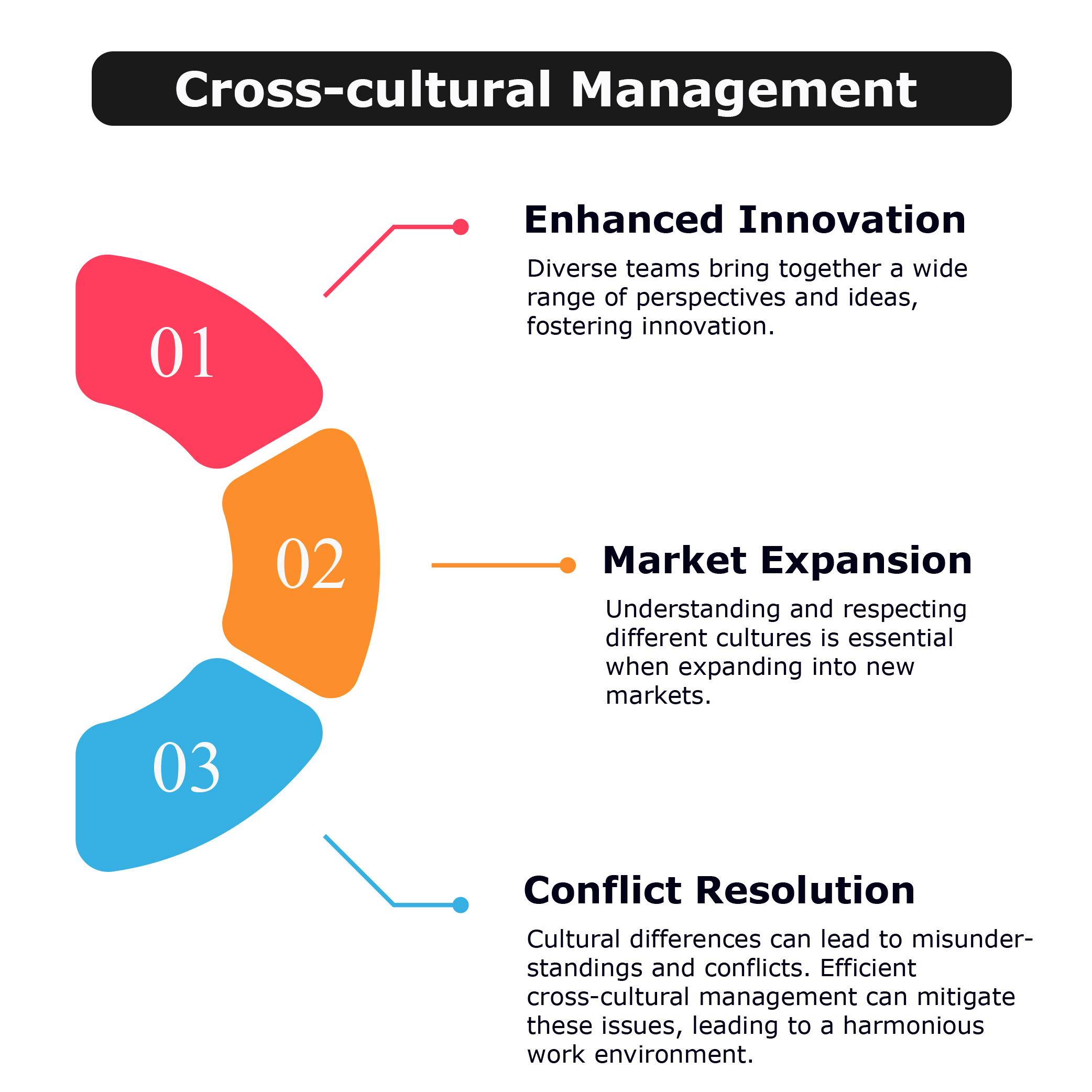In today's globalized world, businesses are no longer confined to their home countries. Multinational corporations span continents, and even smaller companies often operate across borders. This global expansion presents both opportunities and challenges and at the heart of it all lies cross-cultural management. For professional doctoral students in international business, understanding and mastering this field is critical. In this blog, we will explore the intricacies of cross-cultural management, delve into educational opportunities, examine business schools, and analyze salary prospects. Let's embark on this journey of knowledge and discovery.
The Importance of Cross-Cultural Management
Navigating the Global Landscape
The global landscape of business is vast and diverse. According to the United Nations, there were 44,000 multinational corporations worldwide in 2020. These corporations operated over 300,000 foreign affiliates, with the total number of employees reaching 82 million. This highlights the extensive reach of multinational organizations and the need for effective cross-cultural management.

Cross-cultural management is crucial for several reasons:
-
Enhanced Innovation: Diverse teams bring together a wide range of perspectives and ideas, fostering innovation. A McKinsey report revealed that companies with greater ethnic and gender diversity in their executive teams are 33% more likely to achieve above-average profitability.
-
Market Expansion: Understanding and respecting different cultures is essential when expanding into new markets. Statista reports that the global retail e-commerce sales are expected to reach 4.9 trillion USD by 2021, showcasing the vast opportunities in international markets.
-
Conflict Resolution: Cultural differences can lead to misunderstandings and conflicts. Efficient cross-cultural management can mitigate these issues, leading to a harmonious work environment.
Challenges in Multinational Environments
While the rewards of managing multicultural teams and organizations are substantial, the challenges are equally significant:
-
Communication Barriers: Language differences and varying communication styles can hinder effective collaboration. According to the Common Sense Advisory, 75% of consumers prefer to buy products in their native language.
-
Cultural Norms: Different cultures have varying norms and values. For instance, Hofstede's Cultural Dimensions Theory highlights differences in power distance, individualism-collectivism, and uncertainty avoidance among cultures.
-
Conflict of Interests: Multinational teams may have conflicting goals and interests due to cultural disparities, which need to be managed delicately.
To address these challenges, it's essential for doctoral students in international business to acquire in-depth knowledge and skills in cross-cultural management.
Professional Doctorate in International Business
The Educational Pursuit
Why pursue a professional doctorate in international business?
The answer lies in the depth of knowledge and expertise it provides. According to a report by the Global Knowledge Partnership on Migration and Development (KNOMAD), individuals with higher education degrees are more likely to earn higher salaries and have better career prospects. Moreover, a professional doctorate equips students with research skills, critical thinking abilities, and a global perspective – all crucial for success in international business management.
Business Schools: Where to Begin
Choosing the right business school is paramount in your educational journey. Several prestigious institutions offer programs in international business. According to the Financial Times Global MBA Ranking 2021, institutions like Harvard Business School, INSEAD, and London Business School rank among the top globally. Location plays a vital role as well. For example, business schools in Europe and Asia often provide unique insights and networking opportunities specific to their regions.
Online Learning Opportunities
Online education is on the rise, and it offers numerous benefits for students pursuing international business doctorates. A report by the Babson Survey Group and the College Board revealed that over 30% of higher education students take at least one online course. Online programs provide flexibility, allowing students to balance their studies with work and other commitments. They also eliminate geographical barriers, making education accessible to a global audience.
Proximity Matters: Business Schools Near You
If you prefer an on-campus experience, consider enrolling in a program close to your location. Proximity to a business school can offer several advantages, including:
-
Networking Opportunities: Local business schools often have strong ties with regional businesses, providing valuable networking opportunities and internships.
-
Cultural Immersion: Being in close proximity to your chosen school can immerse you in the local culture, enhancing your cross-cultural understanding.
International Options: Business Schools in India and Europe
International students seeking education in countries like India and Europe have a plethora of options. India, known for its vibrant culture and booming economy, hosts esteemed institutions like the Indian Institutes of Management (IIMs). In Europe, countries like Germany, France, and the UK offer world-class education in international business. These institutions cater to both local and international students, creating a diverse and enriching learning environment.
Prospects and Salary Insights
Salary Expectations
One of the key considerations for any student pursuing a professional doctorate in international business is future earnings. Salaries in this field can vary widely based on factors such as location, level of education, years of experience, and the specific industry. However, the potential for high earnings is significant.
According to data from the U.S. Bureau of Labor Statistics, the median annual wage for top executives was $107,680 in May 2020. For professionals in the management, scientific, and technical consulting services industry, the median annual wage was $91,860 during the same period. Earnings tend to be higher for those with advanced degrees and extensive experience.
Bridging the Cultural Divide
Strategies for Success
Effectively managing cultural differences within multinational teams and organizations is essential for success. Here are some strategies to consider:
-
Cultural Sensitivity Training: Provide employees with cultural sensitivity training to raise awareness and reduce misunderstandings.
-
Clear Communication: Encourage open and clear communication to bridge language and communication style gaps.
-
Diversity and Inclusion Initiatives: Implement diversity and inclusion initiatives to foster a sense of belonging among employees from different cultural backgrounds.
Case Studies and Success Stories
Real-life examples can provide valuable insights into cross-cultural management. One such success story is that of McDonald's. The fast-food giant has successfully adapted its menu and marketing strategies to suit local tastes and cultures around the world. This approach has allowed McDonald's to thrive in diverse markets, demonstrating the importance of cultural adaptation.
In conclusion, cross-cultural management is a pivotal skill for professional doctoral students in international business. As the world becomes increasingly interconnected, businesses must navigate cultural differences to thrive. Pursuing a professional doctorate in international business, selecting the right business school, and understanding salary prospects can set you on a path to success. By mastering cross-cultural management, you can bridge divides, unlock opportunities, and make a meaningful impact in the global business landscape.
Ready to Master Cross-Cultural Management and Elevate Your International Business Career? Enroll Today in Our Online Professional Doctorate in International Business!
Unlock a world of opportunities, gain invaluable expertise, and position yourself at the forefront of global business with our online professional doctorate program. Don't miss out on this chance to shape your future in international business.
Written By : Rebecca Wilson




